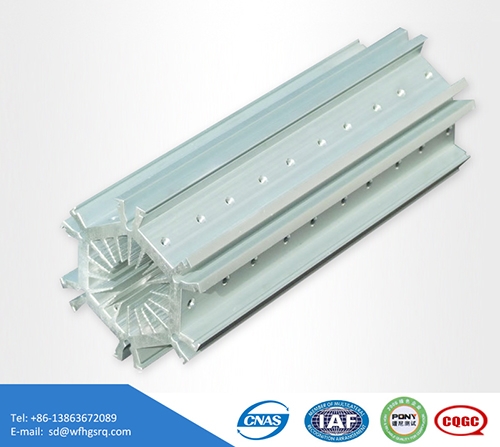Electronic products include large-scale mechanical equipment. A very important part or workpiece is heat dissipation. At present, supporting aluminum radiators are often used. However, there are also individuals who will buy their own aluminum radiators with good quality. What problems should we pay attention to when purchasing aluminum radiators? Let's let the aluminum radiator manufacturers make up a small number of them to understand Now!
There are 5 points for attention when purchasing aluminum radiator
I. pay attention to internal anti-corrosion when selecting steel radiator
Cast iron radiators were eliminated and replaced by steel radiators (column type, plate type, etc.). But at present, aluminum radiator is the best one.
In addition, some radiator manufacturers in the market are vigorously promoting their radiator products "no weld". In fact, it can not play a great role in the anti-corrosion of radiator. Because the corrosion of the steel radiator does not occur on the weld, which is determined by the corrosion principle of the steel radiator, so "no weld does not mean no corrosion".
II. Cast iron radiator fade out of the market
Cast iron radiator has been the leading product in the market for a long time because of its low price, corrosion resistance and other advantages. However, due to the use of steel joints in many places, corrosion and water leakage are easy to occur. So in recent years, it has been gradually eliminated.
III. The place of purchase is also very particular
Different purchase locations have different after-sales guarantee, so it is necessary to purchase aluminum section radiator in the place of origin or where there is after-sales service guarantee.
IV. copper aluminum composite materials may also be corroded
Copper aluminum composite radiator is also a new type of radiator, which is composed of copper tube and aluminum alloy profile. In general, copper has stronger anti-oxidation and corrosion resistance than steel, which is safer and can be selected by consumers at ease. However, it is not ruled out that corrosion may occur in some specific environment. Responsible manufacturers should also remind consumers, such as "Zehnder copper core Jie" copper aluminum composite radiator, which is clearly marked in the data: "for open pressureless boilers, corrosion may also occur in systems with more sludge and some chemical deoxidizers, such as sodium sulfite."
V. aluminum radiator shall not be mixed with other materials
At present, there are two kinds of aluminum radiators on the market: high pressure and tensile aluminum alloy welding. The aluminum radiators sold in the market of our country are mainly of welding type. Because the strength of the welding points can not be guaranteed, it is easy to have problems and water leakage. Therefore, consumers should choose carefully. In addition, experts remind consumers: because aluminum radiator is not suitable for alkaline water quality, it is different from steel, so it should be avoided to install aluminum radiator mixed with other materials.
In addition to the purchase of aluminum radiator, we also need to pay attention to the exhaust problem after installation and use. During the trial heating period, when the hot and cold water alternate, there will be residual air in the aluminum radiator pipe or heating. At this time, it is necessary to distinguish different situations and exhaust. If the neighbor's house is warm, only one is not hot, and on the top floor, it may be due to rust failure of the automatic exhaust valve of the electronic radiator. If the rooms on other floors are not hot, it may be that there is a problem with the vent valve of the indoor profile radiator, or there is a problem with the indoor inlet and outlet valves. If the heating of a building or a unit is not hot, it may be related to the inlet valve.

| Prev:What should be paid attention to when installing the electronic heat sink? |